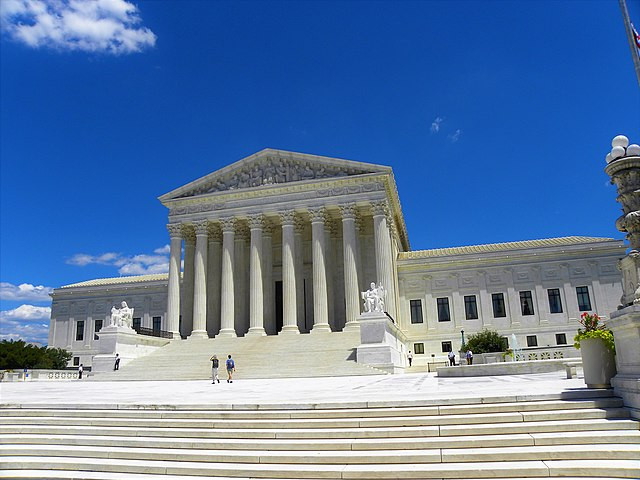The U.S. Supreme Court on Thursday ordered President Donald Trump's administration to take steps to facilitate the release and potential return of Kilmar Abrego Garcia, a Salvadoran man deported in error and held in a prison in El Salvador. The ruling marked a partial rebuke of the Justice Department's efforts to shield the executive branch from judicial oversight in a case involving an admitted deportation mistake.
In an unsigned decision, the high court upheld an earlier order by U.S. District Judge Paula Xinis, who instructed the administration to "facilitate and effectuate" the return of Abrego Garcia, a Maryland resident. However, the court also called on the judge to clarify the scope of her directive, particularly the term "effectuate," which the justices said may exceed judicial authority and must be balanced against "the deference owed to the executive branch in the conduct of foreign affairs."
Abrego Garcia, who held a work permit and lived with his wife and children in Beltsville, Maryland, was detained by U.S. Immigration and Customs Enforcement officers on March 12. He was removed to El Salvador on March 15 aboard a deportation flight alongside individuals the Trump administration identified as members of the Venezuelan gang Tren de Aragua. Justice Department attorneys later admitted that Abrego Garcia's deportation was the result of an "administrative error."
The Salvadoran native had previously been granted protection from removal to El Salvador in a 2019 immigration ruling, which found a "clear probability of future persecution" if he were returned. That order remained in effect at the time of his deportation, Judge Xinis found, rendering his removal unlawful.
Justice Sonia Sotomayor, joined by Justices Elena Kagan and Ketanji Brown Jackson, agreed with the court's ruling but issued a separate statement condemning the administration's actions. "To this day, the government has cited no basis in law for Abrego Garcia's warrantless arrest, his removal to El Salvador, or his confinement in a Salvadoran prison. Nor could it," Sotomayor wrote. She added that the government's attempt to justify leaving a father and husband in a foreign prison "for no reason recognized by the law" was indefensible.
Abrego Garcia's attorney Simon Sandoval-Moshenberg welcomed the decision, saying, "The Supreme Court upheld the district judge's order that the government has to bring Kilmar home. Now they need to stop wasting time and get moving."
The Justice Department, however, emphasized the court's acknowledgment of executive authority. A spokesperson said the decision recognized that "it is the exclusive prerogative of the president to conduct foreign affairs," and argued that the ruling "illustrates that activist judges do not have the jurisdiction to seize control of the president's authority."
Despite having no criminal convictions and being described by his attorneys as a law-abiding worker raising a family with special needs children, Abrego Garcia was included on a high-profile deportation flight after being allegedly misidentified as a gang member. His lawyers have denied any affiliation with MS-13 and said he has never been charged with a crime.
Justice Department filings noted that the error was not in deporting Abrego Garcia but in sending him specifically to El Salvador, despite his protected status. Solicitor General D. John Sauer argued that requiring the administration to negotiate with El Salvador to return him infringed on presidential powers under the Constitution's separation of powers.
Judge Xinis, in her April 4 decision, described Abrego Garcia's removal as "wholly lawless," noting that "there were no legal grounds whatsoever for his arrest, detention, or removal." The Fourth Circuit Court of Appeals declined to stay the ruling, prompting the administration's emergency appeal to the Supreme Court.






